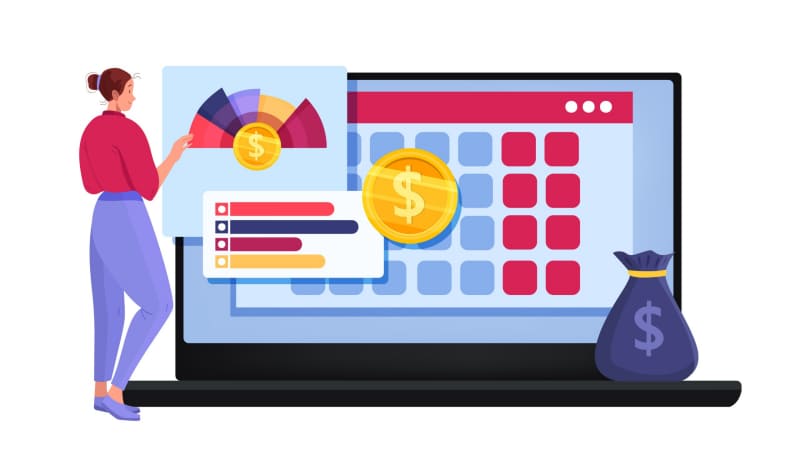What are installment loans?

If you're taking out a loan for the first time, you might be surprised by how many options there are—auto loans, mortgages, personal loans and student loans to name a few. These are all considered types of installment loans, meaning you pay back the lump sum of money over time. You receive all the funds in bulk and then you proceed to pay the loan back in "installments" or monthly payments as agreed upon with your lender.
In this article, you will learn:
- Examples of installment loans
- If installment loans affect your credit score
- How to get an installment loan
- How installment loans differ from other forms of credit
Examples of installment loans
Installment loans can be broken down into secured and unsecured loans.
- Secured installment loans have collateral—or example, an auto loan is considered a secured installment loan because you are using that loan to purchase a car. In the event that you don't make your payments for a prolonged period of time, it's possible for your lender to repossess the car as collateral.
- Unsecured installment loans, on the other hand, are loans that do not have collateral—think student loans, where you're putting this money towards your tuition.
Below are some additional examples of both secured and unsecured installment loans:
- Mortgage—a secured installment loan used to purchase a home
- Personal loan—an unsecured installment loan used to pay for major purchases, such as home repairs
Do installment loans affect my credit score?
Your credit score is a culmination of many factors, including, but not limited to:
- Payment history—how frequently you make regular, on-time payments towards your balances
- Credit age/mix—how "thin" or diverse your credit profile is, such as having multiple forms of credit
- Credit utilization ratio—the proportion of your credit usage to your credit limit
When you make on-time monthly payments towards an installment loan, you improve payment history by building up a solid reputation that you are a reliable borrower.
On the other hand, if you frequently miss your payments or you are late to making payments, your credit score could decrease. When you take out a loan, you may initially and temporarily hurt your score due to a hard inquiry. Hard inquires occur when your lender runs a credit check to help determine your creditworthiness, which can help determine eligibility, rates and credit limits. Don't fret—your score may only fall by a few points, which can be restored with solid payment history and other positive behaviors.
Finally, an installment loan can help diversify your credit profile and establish credit history. Having multiple lines of credit and a long history of credit could show lenders that you are responsible with your money. Adding an installment loan to your profile can help improve your credit mix—however, don't go overboard. Opening up many lines of credit in a short period of time can hurt your score and appear suspicious to credit bureaus and lenders.
How to get an installment loan
You've decided you're going to make a major life change—whether that's buying a car, a home, going to school or making a large purchase. Congratulations! This can be an exciting time—but where do you start when it comes to getting the loan you need?
To get an installment loan, you will generally need the following:
- Proof of identity — for example, your Social Security card, passport or driver's license
- Proof of income — such as paystubs, bank statements and other tax documents (like W-2s)
- Proof of address — such as utility bills, mortgage statements or credit card statements
Depending on the kind of installment loan you're applying for, the process may be slightly different. For example, if you're buying a car, your dealership may use a different scoring model (like the FICO® score) from your bank (such as the VantageScore3.0®). Regardless of what kind of loan you're getting, your credit score helps to determine your interest rates. That's why having a good credit score can help save you money in the long run.
If you have a poor credit score and have been denied approval for an installment loan, consider having a co-signer assist you. Note: Chase does not currently offer co-signers.
How do installment loans differ from other types of credit?
Installment loans are a type of open credit, meaning all the funds are available to you after you've been approved. Other types of credit, like revolving credit, are ongoing—the available funds reset as you pay back your debts. For example, a credit card is a type of revolving credit. As you make payments towards your monthly balances, your credit becomes available to you again, "revolving" as you pay it back.
Installment loans may have some benefits over other forms of credit. For example, the funds are available to you right away and your interest rate is generally fixed, meaning that over time, the percentage of interest you must pay back remains the same. Other forms of credit, like credit cards, may come with variable rates of interest.
Bottom line
Installment loans could be necessary when it comes to providing the money for a major purchase or to fund a significant event. Whether you're about to purchase your first car or plan a wedding, an installment loan can help you reach your next milestone.
Understanding how installment loans work can be helpful when you're looking to apply for a loan. You may be wondering what credit score you might need to get the loan you want, or perhaps you're hoping to protect your credit score in the process.
Fortunately, with tools like Chase Credit Journey®, you can receive your free credit score, learn about what your score means and set achievable score goals. This free online tool can help build the financial knowledge you'll need to apply for and successfully pay back your installment loan.
Regardless of your circumstance, it's helpful to be knowledgeable about how installment loans work and how they can affect your credit score. When you're proactive about your personal finances, you can prepare for financial decisions that can impact your life for the better.



